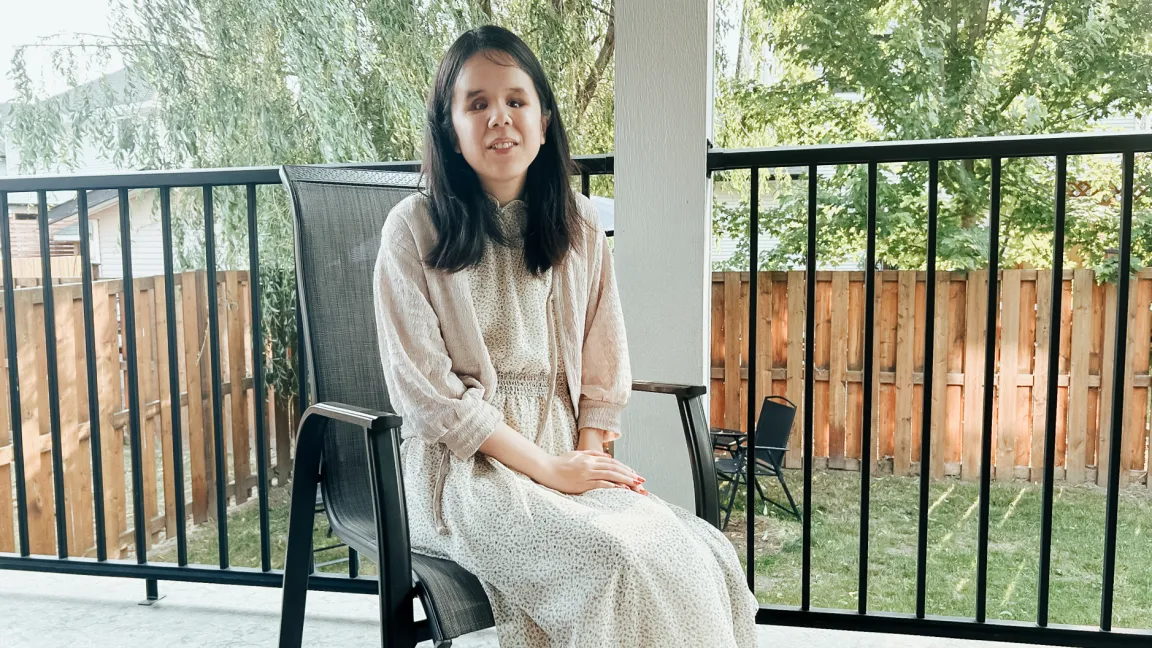Exploring Disability Pride through research and resilience
As part of Disability Pride Month, UNBC student Kaho Michihara shares how research, lived experience and community support are helping her challenge ableism and foster belonging.

As Disability Pride Month highlights the voices and experiences of people with disabilities, UNBC Master of Social Work student Kaho Michihara, a student with a visual impairment, is using research, advocacy and reflection to challenge ableism and explore what it means to feel proud of her identity.
Originally from Japan, Michihara first encountered the term “ableism” while pursuing her Bachelor of Social Work at UNBC. The concept gave shape to years of lived experience; moments of dismissal, exclusion and invalidation that contributed to internalized oppression and a mental health crisis.
“It was very therapeutic for me to learn about structural oppression and its impact on mental health,” she says. “I realized how deeply embedded ableism was in my culture and how much I had been blaming myself.”
Her decision to pursue education in Canada stemmed from a desire for change. She sought a learning environment where she could feel supported, explore new perspectives, and begin healing through education. Discovering social work felt like a turning point, an opportunity to understand not only her own experiences, but the systems shaping the lives of others.
Now completing a thesis on how ableism affects the mental health of young adults with visual impairments, Michihara is focused on identifying meaningful supports that social workers can offer to those who are struggling. Her work addresses a significant gap in mental health services, where the impact of social attitudes and systemic barriers are often overlooked.
“There are so few resources that speak directly to this intersection,” she says. “People with disabilities are often left to process their pain in isolation. I want to help change that.”
Her perspective is also shaped by her lived experience as a student with a disability. From physical barriers to inaccessible forms, she encounters obstacles daily. Support from the Access Resource Centre has made a meaningful difference in helping her advocate, navigate and persist.
“No day is barrier-free,” she says. “But having a safety net means I don’t have to carry everything alone.”
Earlier this year, Michihara served as the keynote speaker for UNBC’s Red Shirt Day during National Accessibility Week, where she shared her reflections on mental health and systemic ableism. She sees Disability Pride Month as a chance to extend that conversation.
“Disability pride cannot be fostered without collaboration,” she says. “It starts with care, with being willing to listen and learn.”
When she needs to recharge, she turns to origami and music—creative outlets that help her step away from advocacy work and reconnect with herself. “Doing origami while listening to my favourite artists helps me calm down and reset,” she says.
Through her research and advocacy, Michihara hopes to help others feel less alone in their experiences and more empowered to name the systems that shape them.
“The barriers you face are not your fault,” she says. “Your mental health matters. Your story matters.”
Her work, both academic and personal, continues to push for a future where disability is not only accommodated, but understood, respected and embraced.
Learn more about how UNBC strives to create an inclusive and accessible environment for all members of the University community here.